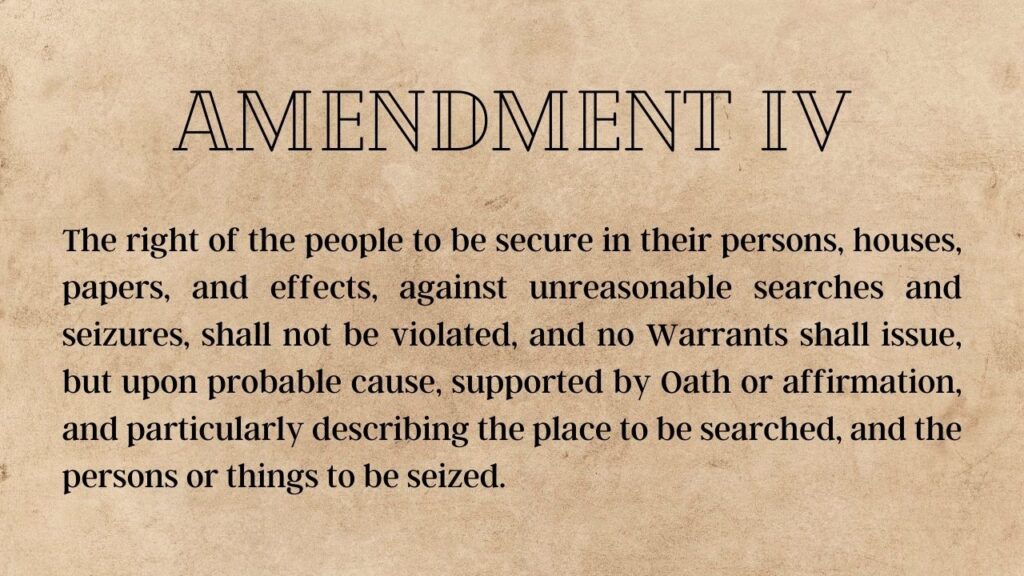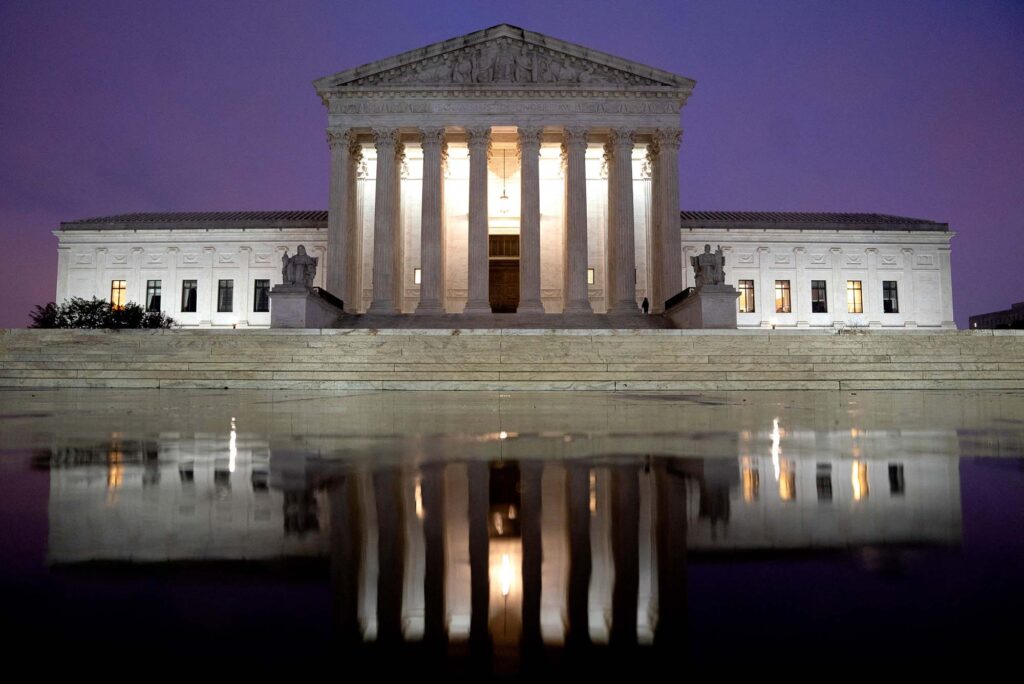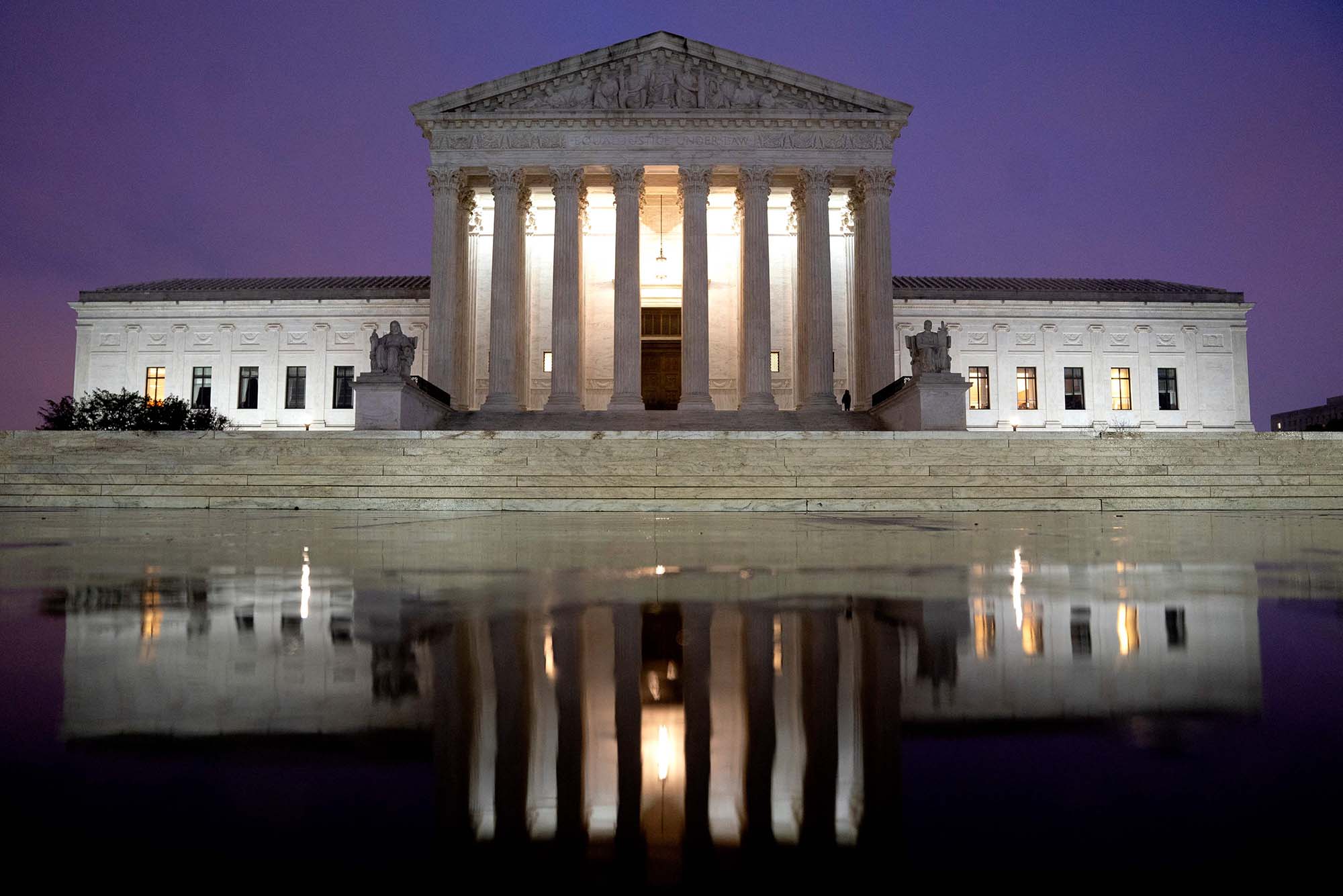SCOTUS Makes It Easier To Sue Police And Prosecutors For Malicious Prosecution
On April 4th, 2022, the Supreme Court of the United States (SCOTUS), in the matter of Thompson v. Clark[1], held that for purposes of a Fourth Amendment claim under § 1983 for malicious prosecution, a plaintiff is not required to show that the criminal prosecution ended with an affirmative indication of innocence. Rather, the plaintiff need only show that the prosecution ended without a conviction. A more detailed analysis and discussion of this case is provided below.
FACTS
Larry Thompson lived with his fiancé (now his wife) and his newborn daughter in a Brooklyn apartment. In January 2014, his sister-in-law was also residing in the apartment. In January, the sister-in-law called 911 and claimed that Thompson was sexually abusing his one-week-old daughter. Two emergency medical technicians (EMTs) responded, but when they arrived at the residence, Thompson denied that anyone had contacted 911. The EMTs returned with four police officers, but Thompson told them they could not enter the apartment without a warrant. The police officers entered the apartment and handcuffed Thompson. The EMTs examined the newborn baby and, finding red marks on her body, took her to the hospital to be examined. Medical personnel at the hospital determined the marks were a case of diaper rash and found no signs of abuse.
The officers arrested Thompson for resisting their entry into the apartment and he was taken to the local hospital and then to jail. The officers charged Thompson with “obstructing governmental administration” and “resisting arrest.” Thompson remained in police custody for two days, when a judge released him on his own recognizance.
Before the matter reached trial, the prosecution moved to dismiss the charges and the trial judge dismissed the case. The prosecutor did not provide an explanation as to why she sought to dismiss the charges, and the trial judge did not provide an explanation as to why he dismissed the case.
Thompson brought suit for damages under § 1983 against the police officers who had arrested and charged him, alleging several constitutional violations, including a Fourth Amendment claim for “malicious prosecution.”
Under Second Circuit precedent, to prevail on a claim for malicious prosecution in violation of his 4th Amendment rights, Thompson was required to show that his “criminal prosecution ended not merely without a conviction, but also with some affirmative indication of his innocence.” Since Thompson could offer no explanation as to why the prosecutor moved to dismiss the charges or why the trial judge dismissed the case, he was unable to show that his case ended with an affirmative indication of his innocence. As such, the District Court ruled that Thompson’s criminal case had not ended with an affirmative indication of his innocence and granted judgment to the defendant officers on that Fourth Amendment claim. On appeal, the U.S. Court of Appeals for the Second Circuit affirmed the dismissal of Thompson’s Fourth Amendment claim.
As stated, to maintain such a Fourth Amendment claim under § 1983, a plaintiff must demonstrate, among other things, that they obtained a favorable termination of the underlying criminal prosecution. The primary question the Court analyzed was, what does a favorable termination entail? Is it enough for the plaintiff to show only that their criminal prosecution ended without a conviction? Or, must have plaintiff also demonstrate “that the prosecution ended with an affirmative indication of their innocence, such as an acquittal or dismissal accompanied by a statement from the judge that the evidence was sufficient?” As the various Courts of Appeals have split over how to apply the favorable termination requirement of the Fourth Amendment claim under §1983 for malicious prosecution, the U.S. Supreme Court granted certiorari to resolve the split.

SCOTUS OPINION
When determining the elements of a constitutional claim under § 1983, it is SCOTUS’ practice to first look to the elements of the most analogous tort as of 1871, when § 1983 was enacted, “so long as doing so is consistent with the values and purposes of the constitutional right at issue.” SCOTUS determined that the most analogous tort to the Fourth Amendment claim is malicious prosecution. Courts have described the elements of the malicious prosecution tort as follows: “(1) the suit or proceeding was ‘instituted without any probable cause’; (2) the ‘motive in instituting’ the suit ‘was malicious’, which was often defined in this context as without probable cause and for a purpose other than bringing the defendant to justice; and (3) The prosecution terminated in the ‘acquittal or discharge of the accused.’”
The third element of this tort – what constitutes a “favorable termination of the underlying dispute” – is the focus of SCOTUS’ decision. SCOTUS found that in reviewing court decisions considering the question, American courts as of 1871 were largely in agreement that the “‘technical prerequisite is only that the particular prosecution be disposed of in such a manner’ that it ‘cannot be revived.’” Courts found that a favorable termination can include the dismissal of a matter because it “marked an end to further proceedings against the defendant” on the charges. Likewise, courts held that plaintiffs could maintain a case for malicious prosecution when a prosecutor “abandoned the criminal case” or the court “dismissed the case without providing a reason.” SCOTUS further noted that the “treatises of that era agreed that a favorable termination occurred so long as the prosecution ended without conviction.”
SCOTUS found that “Because the American tort law consensus as of 1871 did not require a plaintiff in a malicious prosecution suit to show that his prosecution ended with an affirmative indication of innocence, we similarly construe the Fourth Amendment claim under § 1983 for malicious prosecution.”
SCOTUS concluded that a Fourth Amendment claim under §1983 for malicious prosecution does not require the plaintiff to show that the criminal prosecution ended with some affirmative indication of innocence. Rather, a plaintiff need only show that the criminal prosecution ended without a conviction. As such, SCOTUS reversed the judgement of the U.S. Court of Appeals for the Second Circuit and remanded for further proceedings consistent with its opinion.
TAKE AWAY
In its decision, SCOTUS explicitly stated that it expressed no view on any additional questions that may be relevant to the matter on remand, including whether Thompson was ever seized as a result of the malicious prosecution, whether he was charged without probable cause, and whether the officers were entitled to qualified immunity.
What does this decision mean for the future of law enforcement? Will the Court’s holding have a chilling effect on an officer’s decision to arrest? Will prosecutors be less willing to dismiss cases prior to trial, when to do so could result in an increase in malicious prosecution cases? While these possible consequences are likely not what the Court intended, they very well could be the end result of such a decision.
During its analysis, SCOTUS opined that its decision would not affect an officer’s protection from unwarranted civil suits as, among other things, officers are still protected by the requirement that the plaintiff show the absence of probable cause and by qualified immunity. What various law enforcement agencies understand, however, is that the concept of qualified immunity has come under attack by legislatures throughout the country. The assurances by SCOTUS that officers have this option available to them does not necessarily instill confidence amongst officers or law enforcement agencies.
Judge Alito filed a Dissenting Opinion in which he stated, “What the court has done is to recognize a novel hybrid claim of uncertain scope that has no basis in the constitution and is almost certain to lead to confusion.” Alito further stated that “the Court claims that the ‘gravamen’ of petitioner’s Fourth Amendment claim is the same as that of a malicious prosecution claim: the ‘wrongful initiation of charges without probable cause.’ . . . But what the court describes is not a Fourth Amendment violation at all. As explained, that amendment protects against ‘unreasonable searches and seizures’ not the ‘unreasonable initiation of charges.’” Alito concluded that “the Court’s recognition of a Fourth Amendment malicious-prosecution claim has no basis in our precedents.”
[1] 596 U.S. ____ (2022)
SCOTUS Civil Rights Ruling against Police Hailed by BU Faculty
Amicus brief filed by LAW dean and Center for Antiracist Research staff may have played a role in Court’s decision in Thompson v. Clark
The little-known civil rights case started back in 2014. The ruling came in 2022. And when the US Supreme Court decided Thompson v. Clark this week in favor of Larry Thompson, by a 6-3 vote, both the BU School of Law and the BU Center for Antiracist Research (CAR) had cause for joy and relief.
The backstory: in January 2014, Thompson, a Navy veteran and postal worker, was living in Brooklyn with his fiancée, their newborn, and Thompson’s sister-in-law. The baby was a week old when the sister-in-law called 911 to claim that Thompson had sexually abused the infant, pointing to a red rash on the baby’s buttocks as proof. Four officers came to the house and when Thompson refused to let them in without a warrant, they tackled him, pinned him to the floor, and arrested him, with one officer filing criminal complaint charges that he resisted arrest (a charge that was later dropped without any explanation).
But when the hospital said the baby merely had a diaper rash, Thompson, who had spent two days in jail, sued the police under a 150-year-old federal civil rights law, known as Section 1983, that lets citizens sue state officials over violations of their constitutional rights, even after prosecutors drop all charges. He claimed the officers had violated the Fourth Amendment, which prohibits “unreasonable seizures.”
In a BU Today POV last October, Neda Khoshkhoo, CAR assistant director of research and policy, and Caitlin Glass, CAR interim associate director of policy, wrote: “Anyone who cares about deterring racialized police misconduct should watch this case closely.”
In support of Thompson’s argument, LAW Dean Angela Onwuachi-Willig, Glass, Khoshkhoo, Jasmine Gonzales Rose, a School of Law professor of law and CAR deputy director of research and policy, submitted an amicus brief to the Supreme Court, arguing that Thompson’s rights had been violated.
While it’s not known if the amicus brief influenced any of the justices directly, the editor of the Supreme Court Press, which assists with preparing documents for SCOTUS, emailed the brief’s authors: “Congratulations—Your amicus brief was successful. This is a message to the BU team that we worked with on the amicus curiae brief in Thompson v. Clark et al. Your case was reversed and remanded. Amicus briefs are a unique and powerful method for directly interfacing with government on important matters and your voice was heard.”
“When I read the opinion, I felt such joy,” Gonzales Rose says. “A plaintiff bringing a Fourth Amendment claim for malicious prosecution need only show that their prosecution ended without a conviction to have their proverbial day in court! I was also relieved that the majority did not follow Justice Alito’s dissent and allow this case to be an excuse to eliminate malicious prosecution claims.”
BU Today asked Gonzales Rose, Khoshkhoo, and Glass for perspective on the ruling’s importance. They answered together.
Q&A
JASMINE GONZALES ROSE, CAITLIN GLASS, AND NEDA KHOSHKHOO
BU Today: Of all the cases the Supreme Court agrees to hear, why was this particular little-known civil rights case important enough for you to become involved with an amicus brief?
This case has significant implications for racial justice, even though racism was not a focus of the issues presented to the Supreme Court. We saw an opportunity to explain how Mr. Thompson’s case connects to broader issues of racialized police misconduct, and why the “indications-of-innocence” standard is not only nonsensical, but also racist.
The indications-of-innocence standard is part of a web of technical barriers to police accountability that are frequently overlooked and need to be removed—like qualified immunity. We wanted to illustrate why this somewhat complicated and technical legal standard causes real-world harms, particularly for BIPOC [Black, indigenous, people of color].
Given the current conservative 6-3 makeup of the US Supreme Court, did the ruling in Thompson v. Clark surprise you?
You never know what courts will do, but the Court’s ruling should not be a surprise given that the original purpose of Section 1983 was to hold state actors accountable for civil rights violations, and the “indications-of-innocence” standard impeded that purpose.
As the word of this ruling spreads and reaches the level of police departments and prosecutors, how do you hope it will help to change behaviors and relationships between law enforcement and the BIPOC community?
Our hope is that this ruling will help deter racialized police misconduct. We hope that when police officers learn that dismissals no longer foreclose federal civil rights claims regarding false charges, they will think twice before pursuing false charges in the first place.
That said, as noted by Justice [Brett] Kavanaugh in the Thompson v. Clark opinion, officers are still protected by the doctrine of qualified immunity. There are still many procedural hurdles to police accountability, and we plan to keep finding ways to challenge them.
In the case of Larry Thompson, how would this case have unfolded differently if this ruling had been in place?
If the indications-of-innocence standard had not been in place when Mr. Thompson first sought civil redress, his Fourth Amendment malicious prosecution claim could have been adjudicated years ago. Based on the Court’s decision [April 4], hopefully anyone with such a potentially meritorious claim in the future will not have to go through such a lengthy and burdensome process to seek justice.
Thompson v. Clark – Maliciou$ Prosecution claim under § 42 U.S.C. 1983 Click Here
20-659 Thompson v. Clark (04-04-2022) – Suing the Government
Learn more about these sujects
- Malicious Prosecution
- Prosecutional Misconduct
- Vindictive Prosecution
- Retaliatory Prosecution
- Abuse of Process
Selected Issues in Malicious Prosecution Cases
Malicious Prosecution / Prosecutorial Misconduct
Vindictive Prosecution – Georgetown University
VINDICTIVE AND SELECTIVE PROSECUTION
What is Abuse of Process?
Defeating Extortion and Abuse of Process in All Their Ugly Disguises
What’s the Difference between Abuse of Process and Malicious Prosecution?
Malicious Prosecution Actions Arising Out Of Family Law Proceedings: Proceed Carefully
Frivolous, Meritless or Malicious Prosecution
SCOTUS Makes It Easier To Sue Police And Prosecutors For Malicious Prosecution
Prosecutional Misconduct – SCOTUS Rulings re: Prosecutors
National District Attorneys Association – National Prosecution Standards – NDDA
What Happens If Charges Are Dropped Before Trial?
Functions and Duties of the Prosecutor – Prosecution Conduct
Possible courses of action Prosecutorial Misconduct
Misconduct by Judges & Prosecutor – Rules of Professional Conduct
PC 1385 – Dismissal of the Action for Want of Prosecution or Otherwise

